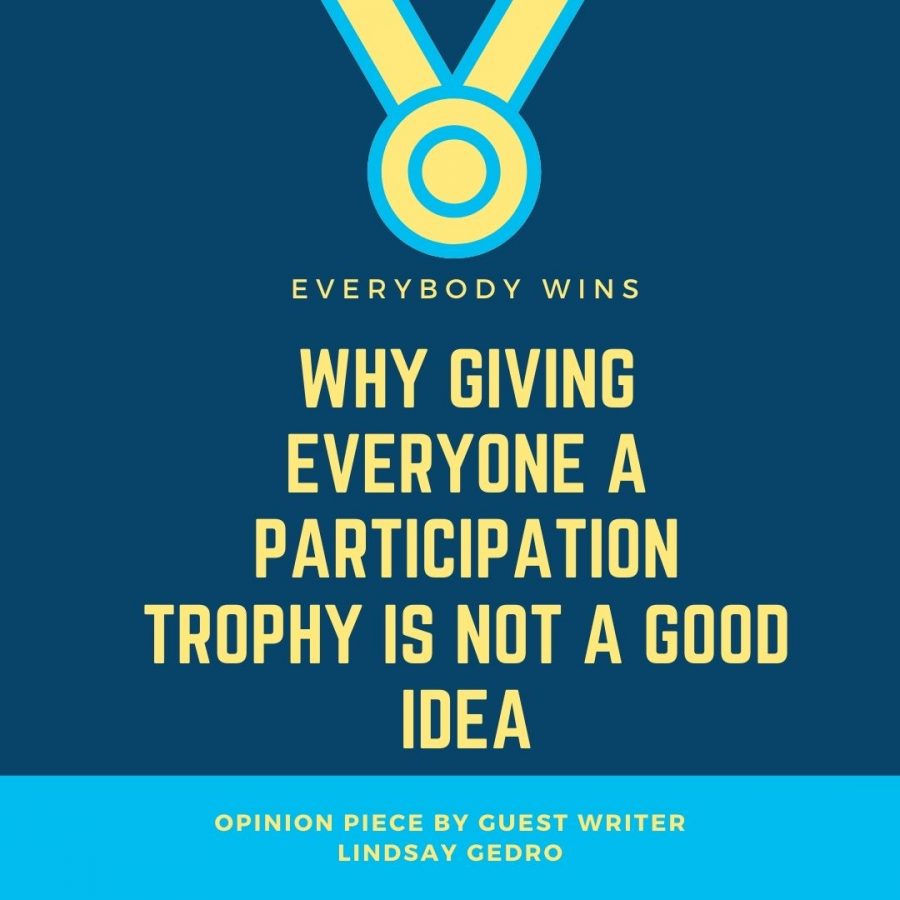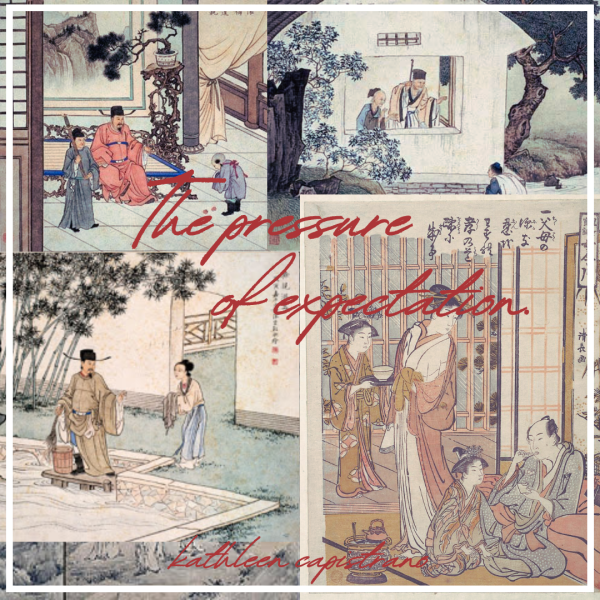Everybody Wins
Why giving everyone a participation trophy is not a good idea
January 14, 2021
Cheers erupt when the game is over. One team congratulates themselves. The other accepts defeat. This is the point of competition: someone is a winner, and someone is a loser. In this day and age, however, “everyone’s a winner.” Each participant is given the same award that day, even the players on the losing team. The winning team is confused, expecting to be acknowledged for the hard work they put in to come out on top, but instead, they are told that everyone did amazing.
This is the dilemma of participation trophies. It is my own view that participation trophies should not be distributed as they can harm the children whom they are given to. Though I concede that participation trophies can boost self-esteem among children, I maintain that the distribution of them breeds more negative effects than positive.
Senior Mia Langley agrees.
“Participation trophies put too much emphasis on doing the bare minimum. It’s not like you did a great job; it’s just like you did something. I think when you’re part of a team you should do more than the bare minimum,” said Langley.
Motivation is integral to being successful in all aspects of life. Having a goal to work towards and understanding the purpose of what one is doing to reach that goal is important to learn, especially at a young age. Participation trophies can hinder motivation.
“I feel like participation trophies make it seem that your hard work has been overshadowed by others lack of effort or lack of skill ,” said senior Raychel Whyte.
When trophies and awards are given to everyone it strips the gratification of going above and beyond to succeed. Rather, those who put in extra time are made to feel unseen when they are cast the same as those who only showed up. For these children, it can make them lose the motivation to work hard, instead opting for doing the bare minimum when they know they will achieve the same prize as their peers either way.
Along with creating a lack of motivation, participation trophies can foster harmful personality traits that children can carry with them into adulthood. A study published in the Journal of Contemporary Athletics “found that constant undeserved praise causes many of today’s college students to be more assertive” and “confident when they have no right to be.” In addition, it was concluded these same students are “also more miserable because they lack the psychological tools to deal with failure, tools learned through the low-stakes experiences of childhood” which includes “winning and losing in youth sports.”
Children that are constantly awarded despite whether they come in first or last place are more likely to have narcissistic traits that can become embedded in their personalities through adulthood. They also have a higher chance of crumbling under pressure due to never experiencing loss and how to work through it. This can be a disastrous trait as they enter higher education and the workforce where they will not be handed everything on a silver platter. Many parents, coaches, and others that distribute and support participation trophies claim that they can boost self-esteem.
“Being praised does boost your self-esteem and I think that’s important, especially at a young age. At the same time, there is a difference between an MVP and someone who only put in a little effort and I don’t think everyone should get the same exact acknowledgement with a participation trophy,” said senior Duaa Saki.
Children react well to praise and self-confidence is important to build at a young age. I can admit this is a strong reason to support participation trophies, but I still uphold the belief that the cons outweigh the pros.
Children who are praised extensively will feel expected to succeed all the time. When faced with failure, it can make children lose faith in themselves, resorting to options like cheating to avoid failure in all. This can be detrimental in situations where failure cannot be avoided, as these children will not know what to do when cheating is not an option.
“I feel like participation trophies cause some students to feel like they are great at everything and then when they finally aren’t great at something they get upset , because they aren’t good at that thing and they don’t know how to handle it,” said senior Diamond Grant.
Even with the positive influence they have on particular children, I continue to believe that participation trophies foster more harm than good. Whether it be from causing a loss of motivation or generating dangerous personality traits, participation trophies have no place in youth sports.










